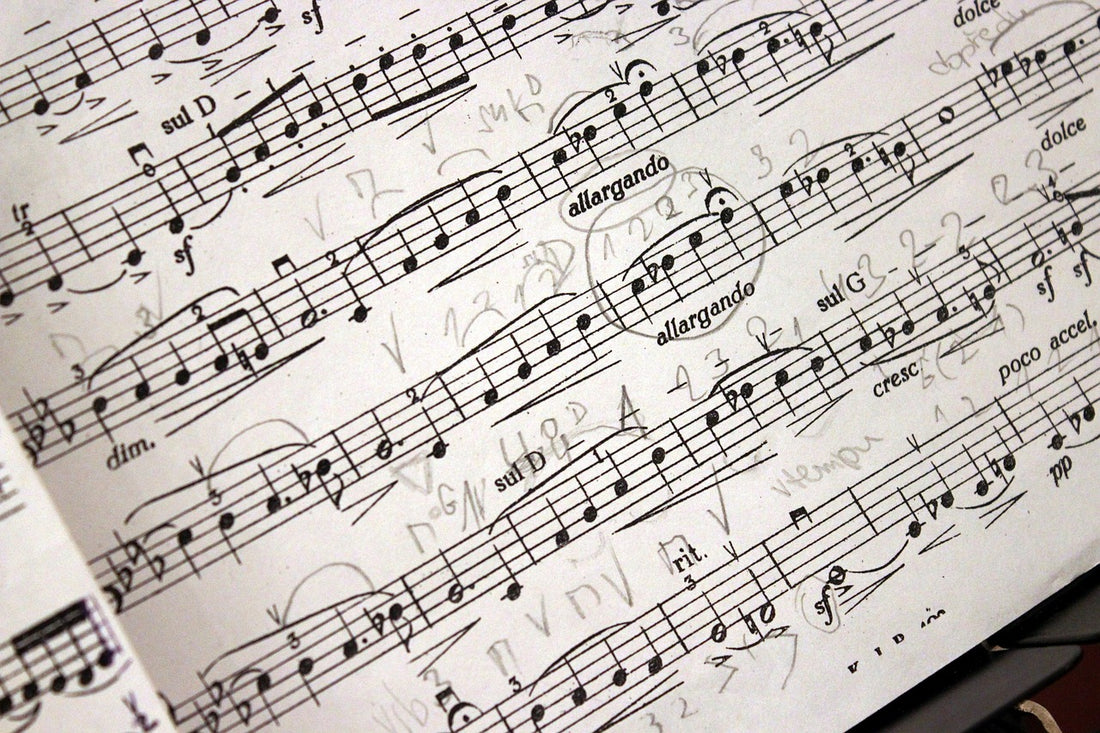There are 26 choices of letters in the English alphabet. My task, as a writer, is to organize and group the appropriate letters in such a way that when you look at them their groupings make sense.
The letters are grouped into blocks we call words.
In music there are fewer letters—12 in Western music—and these are called notes. As a composer, the task is to organize those notes into groups that make sense when played back.
The notes are grouped into blocks we call melody.
As long as we're comparing the two forms of communication, it's interesting to note that both languages have an exact number of punctuation choices:
In language we see:
- Period (.)
- Comma (,)
- Question mark (?)
- Exclamation point (!)
- Colon (:)
- Semicolon (;)
- Dash (—)
- Hyphen (-)
- Parentheses (())
- Brackets ([])
- Ellipsis (...)
- Apostrophe (')
- Quotation marks (“ ”)
- Single quotes (‘ ’)
- Slash (/)
In music we see:
- Whole note - Indicates a note held for four beats.
- Half note - Indicates a note held for two beats.
- Quarter note - Indicates a note held for one beat.
- Eighth note - Indicates a note held for half a beat.
- Sixteenth note - Indicates a note held for a quarter of a beat.
- Thirty-second note - Indicates a note held for an eighth of a beat.
- Sixty-fourth note - Indicates a note held for a sixteenth of a beat.
- Dot - Increases the duration of the note by half of its original value.
- Tie - Connects two notes of the same pitch to create a sustained note.
- Rests - Indicate silence in music, with whole, half, quarter, eighth, sixteenth, thirty-second, and sixty-fourth rests each corresponding to their note equivalents.
- Fermata - Holds a note longer than its usual duration.
- Staccato - Indicates a note is to be played shorter than notated, usually half its value.
- Tenuto - Indicates the note is to be held for its full value or slightly longer.
- Accent - Indicates the note is to be played with more force.
- Sforzando - Indicates a sudden, sharp accent.
Lastly, both a good book and a loved musical composition can elicit tears, joy, hope, and wonder.
Ain't language grand?









